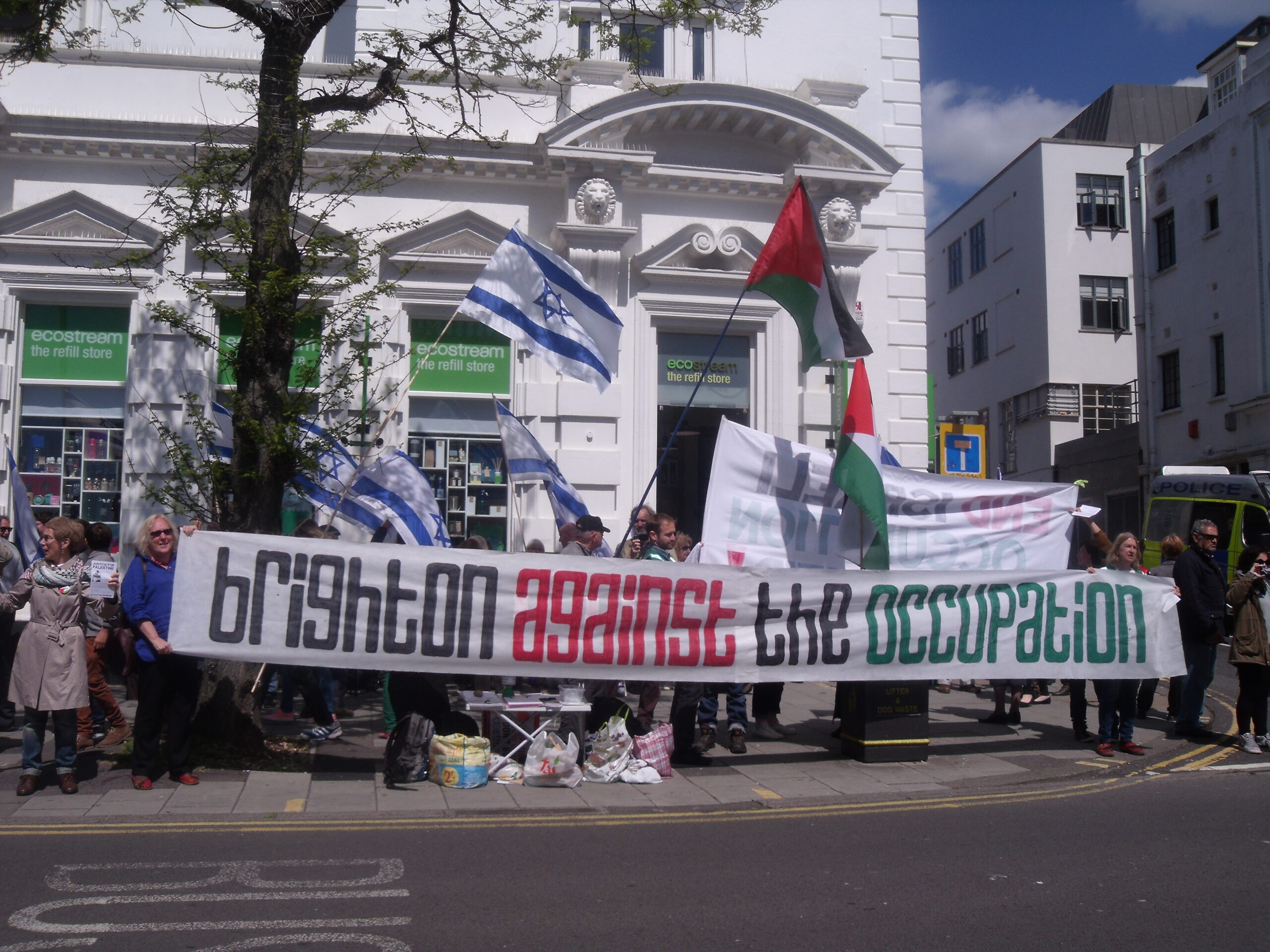In a victory for the Boycott, Divestment and Sanctions (BDS) campaign against apartheid Israel, Ahava, a multinational Israeli Dead Sea products company, will be forced to close its flagship store in Monmouth Street, central London.
Shaftesbury PLC, which owns the property said: “When Ahava’s lease expires in September, we will not offer them a new one.” A director of Ahava, Odelia Haroush, confirmed that Shaftesbury PLC’s decision was linked to the ongoing protests.
Ahava manufactures its products at the Israeli settlement of Mitzpe Shalem in the occupied West Bank. The settlements of Mitzpe Shalem and Kibbutz Kalia are shareholders in the company (see here).
A campaign was launched against Ahava’s Monmouth Street branch in 2008. Protests have been held on a fortnightly basis outside the store since then. The Zionist Federation have organised rowdy counter demonstrations and a ‘buy-cott’ in support of the store. The fascist English Defence League has joined the pro-Ahava demonstrations. These demonstrations, and counter demonstrations, in the heart of central London have created a policing nightmare.
Colin George, manager of clothes shop The Loft, next door to Ahava, told the Jewish Chronicle:
“I’m pleased Ahava is leaving. It’s brought the street down. I’ve complained to the landlords, as has everyone here. Everyone would like them to leave. I wish they had left two years ago.”
Diversity of tactics
The campaign against Ahava has employed a diverse range of tactics to close down the shop. Alongside the fortnightly demonstrations campaigners have complained to Camden Trading Standards over the labelling of Ahava produce as Israeli, contravening guidance from DEFRA and the Cosmetic Safety Regulations. An investigation of the store by Trading Standards is ongoing.
Complaints have been made to the police over the store’s sale of goods which have fraudulently claimed the benefits of the EU-Israel Association agreement by passing them off as Israeli when in fact they are manufactured in a settlement. Representations about the store’s trading practices have been made in Parliament and to HMRC.
Police complaints have been lodged accusing the store of offences under the Proceeds of Crime Act. The store is financed by its Israeli counterpart which has a factory on the settlement of Mitzpe Shalem. Campaigners argued that trading from the settlements encourages the transfer of Israeli settlers into occupied territory, in breach of the Geneva Convention and the Rome Statute of the International Criminal Court.
Campaigners have also targeted high street suppliers selling Ahava products. In February, John Lewis announced that it would no longer stock Ahava products (see here).
The Monmouth Street store has been closed down on dozens of occasions by campaigners locking-on inside the shop. Ahava was initially shy of assisting the police in prosecutions fearing scrutiny of the legality of their business. In August 2010 a case against four blockaders collapsed after Odelia Haroush, a director of Ahava, failed to turn up to give evidence.
In March 2011 four more blockaders stood trial at Stratford Magistrate’s Court for Aggravated Trespass and breach of Section 69 of the Public Order Act. The defendants argued in their defence that Ahava’s business in Monmouth Street was unlawful. Judgement has been reserved until 21st April 2011.
The Monmouth Street shop has been targeted, on dozens of occasions, by activists daubing slogans on the windows, super-gluing the locks, throwing paint bombs, and damaging the shop front.
This combination of public demonstrations, legal challenges and clandestine direct action has proved a successful formula.
A shop front for Israeli apartheid
The Monmouth Street store was never really a profit making enterprise for Ahava. Ahava UK’s accounts up until the end of 2009 show a total loss of more than £250,000 despite receiving more than £300,000 from its Israeli parent company, with no repayment plan. Instead, the store was being subsidised by the parent company to provide a shop window into the UK market for Ahava Israel.
New struggles
Ahava’s attempts to promote their brand in the UK are not over. The store’s manager claims that the company will look for new premises. Ahava also has a sister company, Ahava UK Ltd, running an internet and mail order operation, with premises in Cheltenham.
Ahava is also participating in the NanoRetox programme, an EU/Natural History Museum investigation of nanomaterials, along with King’s College and Imperial College (see here).



1 Comment
Ahava blockaders Supreme Court appeal fails | Corporate Watch · 7th February 2014 at 2:28 pm
[…] a multinational Israeli Dead Sea products company, was forced to close its flagship store Monmouth Street, central London in 2011 after two years of concerted campaigning […]